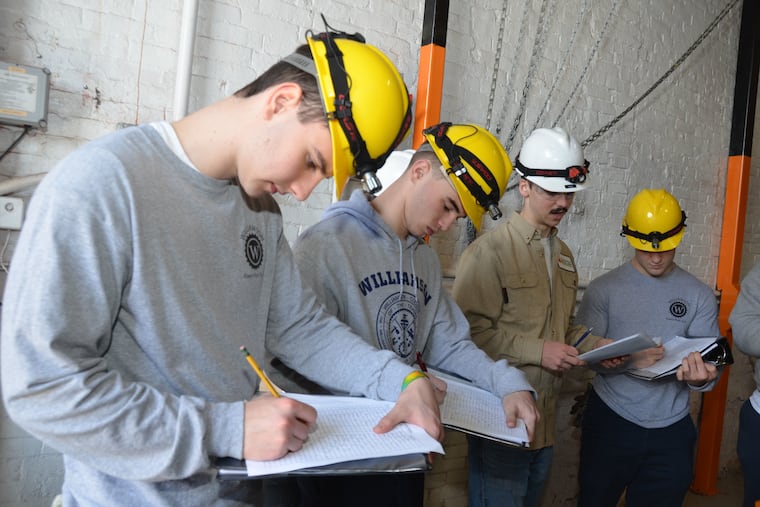Career and technical education keeps America’s economy strong | Opinion
Accreditation is one way to make sure Pennsylvania's career and technical schools are giving students a quality education.

In Pennsylvania and throughout the country, there is an increasing focus on the need for high-quality career and technical education in order to ensure that future workers are well equipped to meet the economic needs of the 21st century.
With total student loan debt at an all-time high of $1.4 trillion, according to a recent study by Experian, there is growing bipartisan recognition that the cost of a traditional four-year college education is unaffordable for many students and families and that an alternative path to the workforce is necessary.
There is little question that high-quality career and technical programs can provide students with life-changing opportunities that may not otherwise be available to them, and can play a critical role in helping America’s employers access a skilled workforce.
Pennsylvania offers more than 1,700 career and technical programs in over 200 schools serving thousands of students across the commonwealth, and that number is likely to grow exponentially in the coming years.
As we celebrate Career and Technical Education Month, Gov. Tom Wolf and his administration, along with the General Assembly, should be commended for their commitment to career and technical education. Over two years, the governor has secured $70 million for the PAsmart initiative, which aims to create the strongest workforce in the nation.
As the state continues to invest millions of taxpayer dollars to support career readiness, it is imperative that career and technical programs be held to the highest standards of accountability and achievement. Too frequently, career and technical schools come under fire for not producing results, like graduates going onto full-time jobs, and are often perceived as not meeting expected student outcomes.
Accreditation, however, is one way to weed out the bad actors and to provide students, families, and taxpayers with a level of assurance that these schools are providing a quality education. It can also help confirm that these institutions are operating in a fiscally sound manner, and equipping students with career readiness skills that lead to job placement and success in their chosen fields.
Accreditation through the Middle States Association Commissions on Elementary and Secondary Schools, an organization I help lead, is a multifaceted, peer review evaluation that schools and school systems, including career and technical secondary and post-secondary schools, voluntarily use to demonstrate they are meeting a defined set of research-based performance standards.
The 12 Middle States standards — such as quality of institutional planning and student services — examine schools and school systems in a holistic way, supplementing student’s testing data to provide a more complete measure of performance, and chart a strategic, realistic course for continuous school improvement.
In addition, Middle States accreditation is unique in that it requires career and technical schools to meet a 70-70-70 threshold. That means at least 70% of students must complete the program, 70% must achieve licensing in their given field, and 70% must have secured a job in their field of study upon graduation.
More often than not, these are good-paying jobs, enabling graduates to earn a sustainable wage.
Case in point, across the nation, 30 million jobs offering an average salary of $55,000 a year do not require a bachelor’s degree, according to a 2018 report by the Pennsylvania Department of Education. Moreover, 27% of young workers with licenses and certificates earn more than those with a bachelor’s degree, according to the same report.
That’s not to take away from the value of higher education, but it is important to recognize that there is not a one-size-fits-all approach to preparing students for the future.
Career and technical education offers students the opportunity to gain the academic, technical, and other skills necessary for true career readiness in growing fields like energy, biomedical, advanced manufacturing, and health care.
It also ensures that employers have access to a qualified and thriving workforce that is necessary to keep America’s economy strong and competitive.
Glen R. Mort is the vice president of accreditation for the Middle States Association Commissions on Elementary and Secondary Schools, based in Philadelphia.